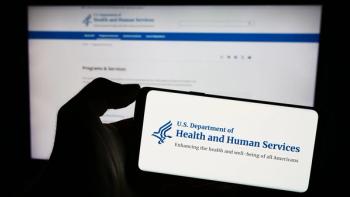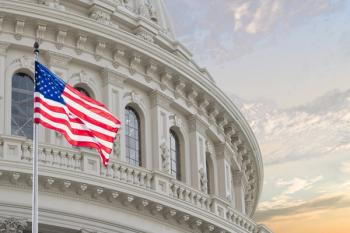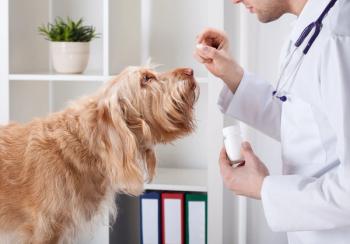
Farm bill moves up political food chain
Washington - Leaders in veterinary medicine are lobbying for several amendments in the Senate's version of the farm bill to remain intact.
WASHINGTON — Leaders in veterinary medicine are lobbying for several amendments in the Senate's version of the farm bill to remain intact.
The five-year omnibus package, which the Senate passed by a historic margin on Dec. 14, was referred to a House-Senate conference committee. At press time, leaders aimed to reconcile differences in the legislation by Feb. 1 — a final hurdle before the bill, formally known as the Food and Energy Security Act of 2007, goes to the White House for President Bush's signature.
The farm bill represents a massive spending plan that governs U.S. agriculture policy, touching everything from food stamps to farm payments and conservation programs. This year, several DVM initiatives received attention in the Senate's $288 billion spending package. The House passed its $290 billion version on July 27, but it does not contain many of the Senate's veterinary-related measures.
As the chambers hashed out their differences, the profession's leaders rallied around the Senate's policy language, especially an amendment appropriating "funds as needed" to jumpstart the Veterinary Workforce Grant Program, known in its stand-alone form as the Veterinary Public Health Workforce Expansion Act.
The amendment, outlined in the farm bill's newly formed Agriculture Security Subtitle, would create a competitive-grants program for universities, allowing them to build programs that increase their output of DVMs focused on public health. If enacted, the program would be run by the U.S. Department of Agriculture (USDA).
"This is major," says Dr. Michael Chaddock, associate executive director of the Association of American Veterinary Medical Colleges. "The slant is to produce more veterinarians working in food safety, food systems, biomedical research and other public health-related areas of veterinary medicine."
Other highlights in the Senate's final package include:
- $2.5 million in funds per year through 2012 for the financially strapped federal Food Animal Residue Avoidance Database (FARAD). The program was established in 1982 to provide veterinarians information on how to rid livestock of drugs and contaminants.
- Language to launch Regional Centers for Excellence in Food Systems Veterinary Medicine, which creates a competitive grants program for accredited veterinary medical schools to establish Regional Centers of Emphasis with expertise in an individual food-animal species. These centers would provide educational experiences for students geared toward research, food-supply bioterrorism prevention and surveillance, food safety and environmental improvements.
- Veterinary Loan Repayment Program language to expedite implementation of the National Veterinary Medical Service Act, which would provide education-loan repayment for veterinarians working in underserved areas.
The act was passed in 2003, but USDA has yet to write the regulations. This language would require USDA to write NVMSA's regulations within 270 days of enactment of the farm bill, and would also give priority to large- and mixed-animal practitioners in rural areas. Finally, the language prohibits USDA from using NVMSA appropriations on other loan-repayment programs.
Newsletter
From exam room tips to practice management insights, get trusted veterinary news delivered straight to your inbox—subscribe to dvm360.






